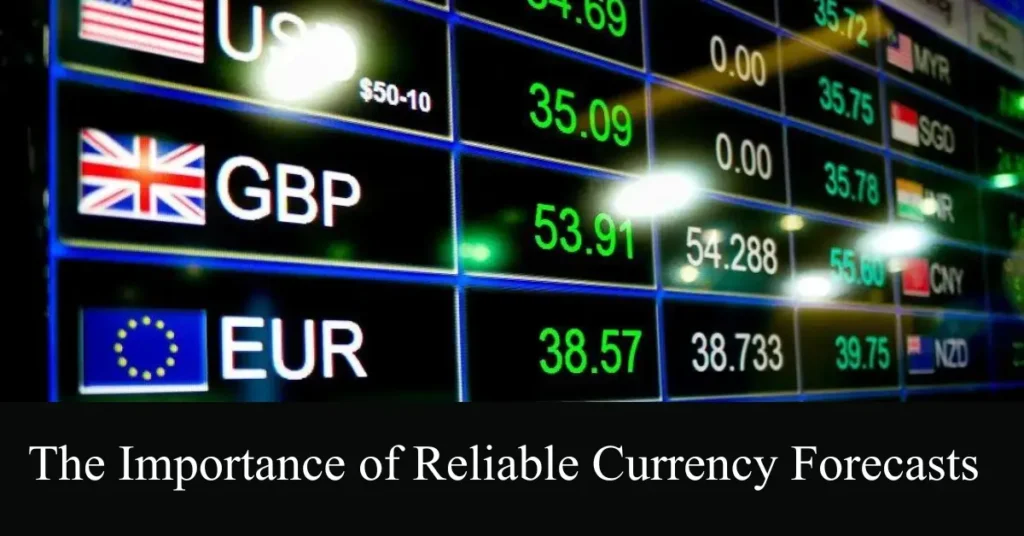When dealing with international financial transactions, especially those involving significant sums of money, the importance of accurate currency forecasts cannot be overstated such as the “Pound to INR forecast,” understanding the future trends of currency exchange rates is crucial for businesses and individuals moving money from the UK to India.
The Critical Nature of Currency Forecasting
Currency forecasting is an essential tool for financial planning and decision-making. For businesses engaging in international trade, investment, or operations across borders, currency fluctuations can significantly impact profit margins, operational costs, and financial stability. Individuals sending remittances, paying for education, or making investments in India also need to understand these fluctuations to optimize their financial outcomes.
Quantitative and Qualitative Factors in Currency Forecasts
To make informed decisions, it is vital to rely on forecasts grounded in both quantitative and qualitative economic factors.
Quantitative Factors
- Interest Rates: Central banks’ interest rate policies significantly influence exchange rates. Higher interest rates offer lenders in an economy a better return relative to other countries. Therefore, if the Bank of England raises interest rates while the Reserve Bank of India keeps them stable, the pound might strengthen against the rupee.
- Inflation Rates: Generally, a country with a lower inflation rate will see an appreciation in its currency’s value compared to countries with higher inflation. Lower inflation in the UK compared to India could lead to a stronger pound against the rupee.
- Trade Balances: The balance of trade between the UK and India affects currency value. A trade surplus in the UK (exporting more than importing) generally strengthens the pound, whereas a trade deficit weakens it.
- Economic Data: GDP growth rates, employment statistics, and manufacturing output are crucial indicators. Stronger economic performance in the UK relative to India can bolster the pound.
Qualitative Factors
- Political Stability: Political events, elections, and policy changes in the UK or India can lead to uncertainty, influencing currency values. Businesses need to stay informed about political developments that might affect economic policies.
- Market Sentiment: Investor perceptions and market psychology often drive short-term currency movements. Factors such as geopolitical tensions, economic outlooks, and news events can influence market sentiment and, consequently, exchange rates.
- Global Events: Global economic events, such as financial crises, pandemics, or major technological shifts, can have significant impacts on currency exchange rates.
Importance for Businesses
For businesses, accurate and reliable forecasts are essential for strategic planning and risk management, it also helps to find a good currency exchange specialist. They enable companies to:
- Hedge Currency Risk: By using forward contracts, options, or other financial instruments, businesses can lock in exchange rates and protect themselves against adverse currency movements.
- Optimize Cash Flow: Understanding currency trends helps in timing payments and receipts in foreign currencies to minimize costs and maximize returns.
- Strategic Pricing: For exporters and importers, knowing future exchange rate trends helps in setting prices that remain competitive while protecting profit margins.
Importance for Individuals
Individuals, too, benefit from accurate currency forecasts when:
- Sending Remittances: Optimizing the timing of sending money to family or friends in India can result in significant savings.
- Investing Abroad: Those investing in Indian real estate, stock markets, or other assets need to consider exchange rate trends to ensure favorable investment returns.
- Planning Education Expenses: For students planning to study in India, understanding exchange rate trends can help in budgeting and financial planning.
The Pitfalls of Random Forecasts
Relying on random or poorly-researched forecasts can lead to suboptimal financial decisions and significant losses. Such forecasts often fail to account for the complex interplay of economic factors and market dynamics. It is crucial to consult reputable sources and financial experts who use comprehensive models considering both quantitative and qualitative data.
Conclusion
In conclusion, whether referred to as the “Pound to INR forecast,” “GBP to INR forecast,” or any other variation, the importance of accurate currency forecasts for businesses and individuals cannot be overstated. By leveraging forecasts that consider a wide range of economic factors, both quantitative and qualitative, stakeholders can make informed decisions, manage risks effectively, and optimize their financial outcomes when dealing with transactions between the UK and India.
